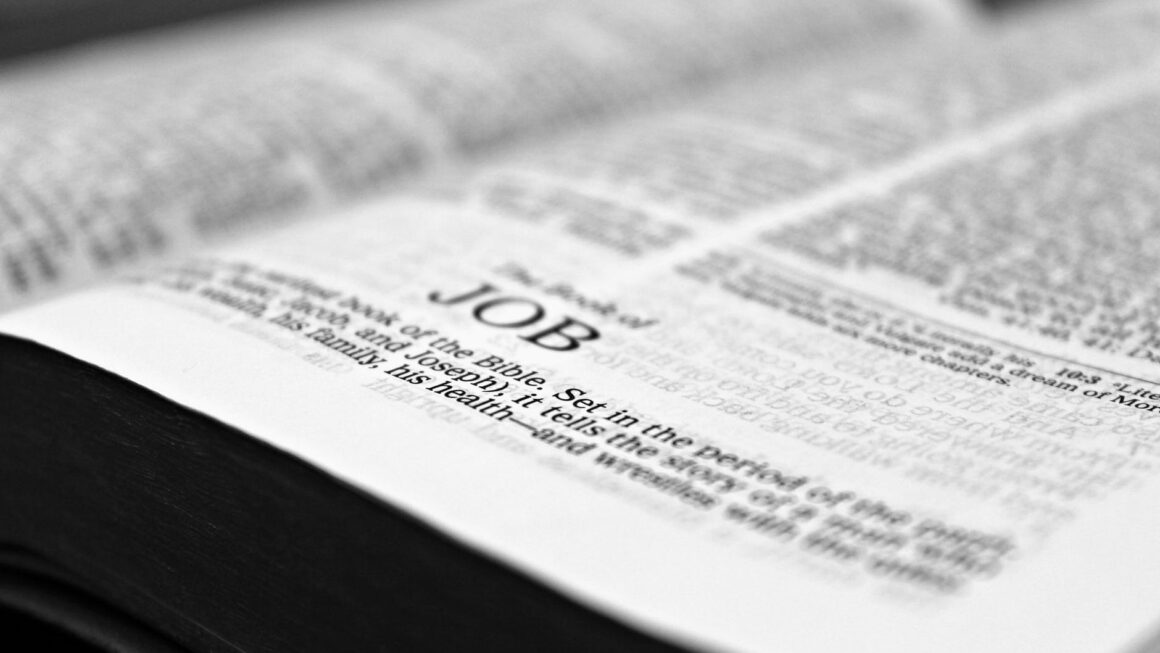Almost 25 years ago Nelson Mandela was released from prison. He has been an inspiration for many people, and I am sure he will remain one for generations. In 1993 his contribution to society was honoured, when he won the Nobel prize for peace, together with F. W. de Klerk. Mandela’s mission was founded in love and human rights.
Mandela’s fight for love and human rights is special to me. I lived in South Africa when he was released from prison. I remember the elections where De Klerk was voted president. I remember the hope that many had that he, from a position of power, would bring change. And change was direly needed.
Borders
I grew up in a country of borders. Everything in my life revolved around borders. There were borders to show you who you could play with and where you were allowed to be. There were even borders to show you which restroom you could use and and if you could sit on the benches in the park. I was on the ‘right’ side of the border – as far as that is possible, of course. I am white, so I could use the whites-only restrooms. I could sit on the benches, and I could live in the nice neighbourhoods. If I had been born with a different skin colour, my life would have been very different.
I grew up in a country of racism and discrimination. Just because you were a little different, because you were on the other side of some random border, you didn’t belong.
Last year I went in South Africa with my wife. I saw some improvement – things look a lot better now – but my wife, having never seen how it was before, was very shocked.
Holland
As the Dutch (or any other country, I am sure) we look at these atrocities in South Africa and we agree that it is idiocy. But, if we are really honest, is it better here? It seems to me that, in Europe and even in “tolerant” Holland, it’s getting worse and worse by the day. And I’m not just referring to extreme right-wing politicians. Certain football players are called monkeys on Facebook – and let’s not even repeat what people are calling moslims.
I see this even in the church. There is racism and discrimination in the local churches and at national events, not to mention the limitations for women and homosexuals set out in policy that seem very much like discrimination.
I can’t really say anything about this, except that it is not the way it should be. Western civilisation should not include discrimination, and Christianity certainly should not. Jesus taught us to look past borders. He spoke to women, who men were not really allowed to talk to in public. He ate with tax collectors: traitors to their country. He converted Samaritans: foreigners that were best ignored. He let the children come to him: the invisibles with even less status than slaves. Even the lepers and criminals, the lowest of the low, were welcome in Jesus’ eyes. Jesus had time for them all. Jesus taught us to look beyond borders.
Divine Borders
Now, God is clearly a God of borders – certain borders, anyway. At creation he created borders between light and dark, between wet and dry. The first humans showed us the border between good and evil. These are borders that belong with God, but there are other borders that God does not like. I would call these borders ‘borders between people’.
Borders between people are the hot topic in the church right now. In most countries we have been discussing the ordination of woman, LBGTI individuals, and the right to discriminate. Can we have a border between men and women in pastoral ministry? Can we have a border between straight and gay in visiting and joining the church? Do we have the right to discriminate based purely on the way we currently understand the Bible? These are difficult questions without easy answers, but let’s look at them one by one.
Women in the Church
The church has been struggling with female pastors for longer than I have been alive. At the moment female pastors are accepted in some form in most countries in the world, but are given a lower status. Male pastors are ordained and can perform all the functions associated with that calling. Female pastors are commissioned and perform most functions. The biggest issue with the status quo is that a woman cannot become conference or union presidents. In 2013, the Dutch church chose to introduce complete equality between genders. Sadly, the General Conference just this week decided to maintain inequality.
This is a huge discussion worldwide. Hundreds of articles and books appeared in the last few years on this topic. My division, the Trans-European Division, wrote a 863 page report – comprehensive but way too long for most people. The division asked me to write a shorter version.
Some Theology
The ordination of woman is a complicated theological topic. The fact that there are no pastors in the Bible doesn’t help matters. Now we have to argue from texts that are only vaguely comparable to our situation. Clearly pastors cannot be compared to the priests in the Old Testament; Jesus is the only high priest now. So that only really leaves the New Testament.
There is no doubt that women played a role in in the New Testament. And there is no doubt that this role is less apparent than that of the men. But the question that remains is ‘Why?’. We could argue that that was God’s intention: women should not have positions of leadership in the church, or at least have ones of lower status than the men. I don’t believe that this is the correct answer. Let me tell you why.
Simple Equality
Let’s start simple: the Bible is very explicit that it stands for equality. Galatians 3 is quite clear: ‘There is no longer Jew or Greek, there is no longer slave or free, there is no longer male and female; for all of you are one in Christ Jesus’ (Galatians 3:28). This is hard to misunderstand: in the church certain borders play no role.
Paul names three borders in this verse: race or nationality, social standing, and gender. As far as Paul is concerned something special happens at baptism. Suddenly you are no longer white or of colour, no longer Dutch or American; you are a Christian. You are no longer a white-collar or blue-collar worker; you are a Christian. You are no longer male or female; you are a Christian. Discrimination has no place in the church.
Complicated Equality
The Bible is a complicated book, both divine and human. On the one side we have the Spirit inspiring people, on the other side we have authors, who, no matter what, remain human. If we look closely, it seems as if God, despite the human authors, is trying to tells us to be inclusive and emphasise equality. The Old Testament culture was very male-oriented. Women played almost no important role, and definitely could not have a leadership role. Despite this God kept calling women. Why? God names Miriam one of the three leaders of the Israelites (Numbers 12:4-8, Micha 6:4). He calls Deborah to be a prophet, a judge, and even a military commander (Judges 4:4-23). I am sure that the people then didn’t appreciate this.
The culture in the New Testament was not much different. Despite the culture, Jesus chose women to be the first witnesses to his resurrection (Luke 24:6-7). And it was Martha who first recognises Jesus as the Son of God (John 11:27). Paul talks about many women, and even calls them apostles (Romans 16:2,7, amongst others).
It seems to me that God, despite all the cultural difficulties, insists on calling women. This statement is not immediately apparent, and of course there are enough texts that suggest inequality between men and women. But a patient Bible student will see the divine message between the discriminating, cultural words of humans. A message of equality.
For many people this is very clear, others trip up over some passages. And, how could it be any different, culture will always play a role.
LGBTI Rights
When I wrote this article in Dutch, it was about the International Day Against Homophobia, Transphobia and Biphobia, which we celebrate on the 17th of May each year. This year was the 25th anniversary of the World Health Organisation’s removal of homosexuality from their list of diseases. That day, 25 years ago, was a great victory for the many people fighting for human rights.
Last year the General Conference organised a conference on sexualities in South Africa. I was invited to be there. When I was there, I was reminded of the role that South Africa and Mandela played in the fight for gay rights. It was like South Africa, after the horrors of apartheid, wanted to make sure that all discrimination was unconstitutional. In 1993 they outlawed discrimination on basis of sexual orientation in their constitution, and they were one of the first to allow same-sex marriage.
One of the first people to speak at the conference in South Africa was the local conference president. He discussed South Africa’s terrible past, and was proud of the fact that all rights of all people are safe in the new South Africa. Sadly, it did not take long before there were panels discussing our right to discriminate.
The Right to Discriminate
A large amount of people in our church defend our right to discriminate. The idea is simple: imagine you have a hotel, can you refuse a gay couple? Or a bakery, can you refuse to bake a marriage cake on account of your religion?
This is a complicated issue. Many people’s gut says that ‘all discrimination is wrong’. But at the same time discrimination is very much part of how we do church. So while a hotel room might be open to gay couples, the baptismal water is not. And even if the couple gets a wedding cake, they won’t be eating it after their marriage in church. As a church we are used to discrimination, we just don’t always notice.
But the question remains: when can we discriminate? Is it always wrong? Could we bake cakes, but not baptise? Can we do both?
It might be the South African in me, but as far as I am concerned discrimination is always wrong. I don’t care if it’s about the colour of your hair or your skin, your gender, your sexual orientation or your favourite colour. Discrimination is wrong, all the time. And that is why it’s so important to remember Paul: ‘There is no longer Jew or Greek, there is no longer slave or free, there is no longer male and female; for all of you are one in Christ Jesus.’ Every time we discriminate, no matter the cause, we destroy this unity, this equality. But there’s more than that.
Those That Cannot Speak
You may never have thought of it like this, but discrimination always goes one way. From the people with power towards the people without it. The whites were in power in South Africa, and discriminated against the rest. The Europeans were in power in the 16th to 19th centuries and discriminated against the colonies. Men are in power in the church and discriminate against the women.
We see the abuse of power everywhere. The people that are least equipped to protect themselves are the ones that are pushed around the most. On this issue the Bible is very clear. I could name a hundred verses, but I’ll just name one: ‘Speak out for those who cannot speak, for the rights of all the destitute’ (Proverbs 31:8).
God’s ideal is that Christians speak for those who cannot speak. Christians should fight against cultural trends and work for the destitute. As far as God is concerned, we should be standing up for those we would normally be expected to discriminate against.
All in all, it’s very simple. God created all people. He just wants us to see each other in his image.
This article is a translation of “In zijn beeld: discriminatie en gelijkwaardig” which appeared in Advent 2, 2015.



Thank you so much for saying in a kind, courteous, reasonable way what so greatly needs to be said. As a minister’s wife and the mother of a gay son, I have been working for many years to urge our church to see this as a present truth that the Holy Spirit is bringing to us. But it seems that many hearts have not yet been softened enough to be open to it.